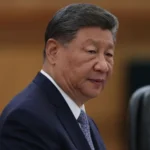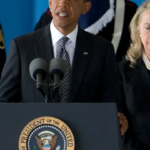Germany’s coalition government has finalized a major overhaul of its military service system, aiming to significantly increase troop numbers after months of political debate.
Under the new plan, all 18-year-old men will be required to complete a questionnaire evaluating their readiness for service. Starting from 2027, they must also undergo mandatory medical screening to determine their fitness for duty. Women will receive the same questionnaire but will not be obligated to respond.
The policy comes as Berlin pushes to build Europe’s strongest conventional army, a goal that Rheinmetall CEO Armin Papperger says could be achieved within five years. Lawmakers are expected to vote on the legislation by the end of 2025.
Germany’s military, the Bundeswehr, currently fields around 182,000 troops. The new system targets an increase of 20,000 soldiers in the coming year and expansion to 255,000–260,000 personnel over the next decade, supported by nearly 200,000 reservists.
defenseFrom next year, the defence ministry will begin sending assessment forms to all 18-year-olds. Failure to meet recruitment goals may lead Parliament to consider introducing compulsory enlistment. In wartime, the collected data could be used to quickly mobilize recruits.
Despite the government’s reassurances, the plan has stirred significant opposition—particularly among younger Germans. A Forsa poll for Stern magazine showed that 63% of those aged 18–29 oppose mandatory service. Many fear being forced into combat or contributing to conflict.
However, others believe the current security environment calls for stronger national defense. Jason, a 21-year-old who recently joined the Bundeswehr, said he enlisted to help preserve peace and democracy and to strengthen Germany’s deterrence capabilities.
Defence Minister Boris Pistorius insisted that the new service model is meant to prevent, not provoke, conflict: “The stronger our defence and deterrence, the less likely we are to be drawn into war.”
Following decades of reduced defence spending and the suspension of conscription in 2011, Germany is now accelerating military investment in response to Russia’s invasion of Ukraine and pressure from the U.S. to meet NATO targets.
Rheinmetall, a major defence supplier for both Germany and Ukraine, has seen surging demand. While Papperger declined to comment on reports of a Russian assassination plot against him, he emphasized that Europe is living through a period far from peaceful—whether one calls it a cold, hybrid, or emerging conflict.
#GermanyNews #MilitaryService #Bundeswehr #EuropeanDefence #NATO #GermanyPolitics #SecurityUpdate #RussiaUkraineWar #DefencePolicy #GlobalAffairs







